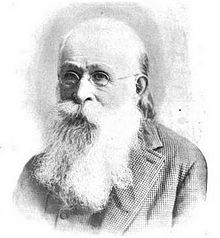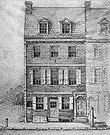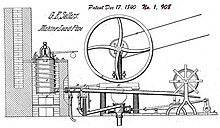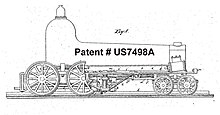George Escol Sellers | |
|---|---|
 George Escol Sellers, ca. 1898 | |
| Born | (1808-11-26)November 26, 1808 Philadelphia, Pennsylvania, US |
| Died | January 1, 1899(1899-01-01) (aged 90) Chattanooga, Tennessee, US |
| Engineering career | |
| Discipline | Mechanical engineering |
| Practice name | Nathan & David Sellers, Globe Rolling Mills |
| Employer(s) | Panama Railway |
| Projects | Lead pipes, railroad locomotives |
George Escol Sellers (November 26, 1808 – January 1, 1899) was an American businessman, mechanical engineer, and inventor. He owned and managed different businesses and patented several inventions. He established a company with his brother Charles where he patented his early invention of a machine that produced lead pipes from hot fluid lead continuously. While working for the Panama Railway in the 1850s, he received various patents for improvements he made on railroad locomotives, including a railroad engine which could climb steep hills.
He was interested in the field of archaeology. He wrote many articles, collected artifacts, and became a skilled arrowhead maker. Some of his arrowheads were displayed at the National Museum of the American Indian. He was interested in art, and he indulged in arts and spent time with artists throughout his life. A character name in the first edition of Mark Twain and Charles Dudley Warner's The Gilded Age: A Tale of Today (1873), "Colonel Eschol Sellers", was similar to Sellers' and had to be changed when he objected to its further use. However, the connection repeated again when the new name, "Colonel Mulberry Sellers", unintentionally referenced the neighborhood where he was born.


